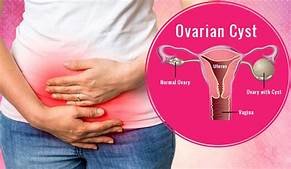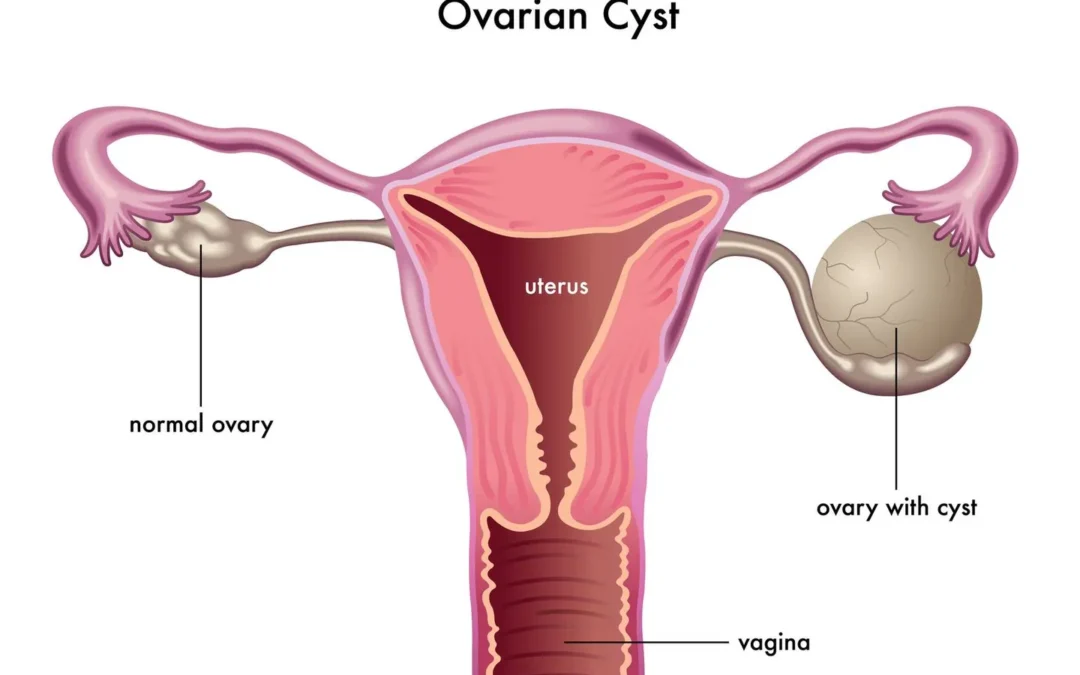Do you experience pelvic pain during or before the menstrual cycle?
Are you experiencing any heaviness in your abdomen?
Are you feeling dizzy?
If yes, then it is likely that you have ovarian cysts.
So, what exactly are ovarian cysts?
Ovarian cysts are fluid-filled sacs in an ovary or on its surface. Ovaries are a part of the female reproductive system, and their main functions are to produce eggs and hormones such as progesterone and estrogen. Ovarian cysts are very common in women.
But do not worry! In most cases, ovarian cysts are painless and do not cause any harm. They go away on their own without any treatment needed.
But yes, some ovarian cysts, especially the larger and ruptured ones, need to be treated at the earliest to avoid serious complications. One can get ovarian cysts treated by visiting the best gynecologist doctor in Malad.
This article talks about the symptoms and causes of ovarian cysts. It also mentions some of the treatment options available in Malad, Mumbai, to treat ovarian cysts.
First, let us discuss the symptoms of ovarian cysts.
What are the symptoms of ovarian cysts?
Usually, ovarian cysts do not cause any symptoms. But large cysts may cause the following symptoms-

- Pelvic Pain
- Abdominal swelling
- Painful intercourse
- Painful bowel movements
- Pain in thighs or lower back
- Nausea
- Vomiting
- Breast tenderness
Severe symptoms that require immediate medical attention include the following-
- Severe pelvic pain
- Dizziness
- Fever
- Rapid breathing
Are you experiencing any of the above symptoms?
Then it is advisable to seek immediate help from the best female gynecologist in Malad, Mumbai- Dr. Shweta Shah. She is a very experienced gynecologist in Malad. She is the path to a woman’s dream of becoming a mother. She has also treated many cases of ovarian cysts successfully.
Now, let us discuss the causes of ovarian cysts.
What are the causes of ovarian cysts?
Some of the common causes of ovarian cysts are as follows-
Endometrioma cysts frequently arise in the presence of endometriosis. Tissue from the uterine lining attaches to one or both ovaries, resulting in painful growth — especially during the menstrual cycle and sexual intercourse.
- Hormone Problems
Natural fluctuations in hormones, particularly cortisol, occur in particular women, resulting in hormonal imbalances. This can be caused by a variety of factors, including stress, lack of sleep, and even a poor diet. Fertility medicines may also cause ovarian cysts. This is especially true of ovulation-inducing medications.
- Infections of the Pelvis
Infections that spread to the ovaries or the uterine tubes are very likely to result in the formation of at least one cyst.
- Pregnancy
It’s typical for a cyst to form on an ovary during ovulation, so it’s not surprising that it can stay there during pregnancy. While this kind usually has no symptoms, if it swells in size, your doctor may urge that it be removed since it could burst, causing pressure or pain, or even displace an ovary out of position.
- Ovarian Cyst in the past
Women who have already had one ovarian cyst are much more likely to get another. However, it’s important to remember that having had cysts in the past does not mean you’ll get ovarian cancer.
Now, let us discuss some of the treatment options available in Malad, Mumbai, to treat ovarian cysts.
What are the treatment options used to treat ovarian cysts?
Usually, ovarian cysts go away on their own, and no treatment is required. But in cases where cysts don’t go away and get larger and cause pain and discomfort, in such cases, your gynecologist in Malad recommends doing surgery to remove the cyst.
The standard surgical methods used are as follows-
Laparoscopy
Your doctor can conduct a laparoscopy to surgically remove the cyst if it is small and results from an imaging test to rule out cancer. Your doctor will make a small incision around your navel and then remove the cyst with a little device inserted into your abdomen. Dr. Shweta Shah is an expert in performing laparoscopy.
Open Surgery
If the cyst is substantial and problematic, it will require open surgery. In open surgery, the incision might be huge.
The other treatment options include taking birth control pills etc.
How can ovarian cysts be prevented?
Unfortunately, there is no way to prevent ovarian cysts. But as the saying goes, “The sooner, the better.” Though one cannot prevent ovarian cysts, one can detect the ovarian cysts early through regular pelvic exams, thus avoiding the complications caused by ovarian cysts.
To know more about ovarian cysts and get effective treatment for ovarian cysts, visit Dr. Shweta Shah- the best female gynecologist in Malad, Mumbai. You are just a visit away from your solution!

